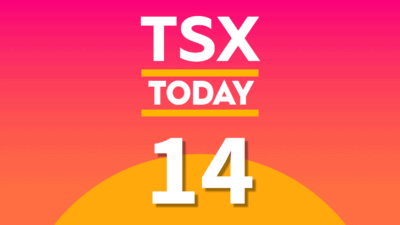The stock market continually garners a considerable volume of sensational headlines that fuel nervousness among investors. This coupled with the heavy-handed marketing of fund managers and financial planners creates the illusion that mutual funds offer superior and more accessible means for small investors to access the market.
This couldn’t be further from the truth.
Direct stock investing is still one of the best and possibly the easiest means of achieving investing success, particularly in the information age with the advent of a wide range of low-cost internet brokers. Stock investing offers considerable advantages over mutual funds, which may come as a shock to some investors, especially because fund managers have aggressively marketed the importance of mutual funds for decades.
Now what?
One of the principal arguments has been that mutual funds are the limousine to the stock market, where, for a fee, you receive professional navigation through the market’s intricacies.
Wait one moment.
As a former industry insider, I typically only ever see these arguments being wheeled out by fund managers or industry-aligned organizations such as financial planners.
If the market is that complicated to navigate, then how did a janitor amass an US$8 million fortune, or an IRS auditor build a US$21 million nest egg from investing in stocks?
Besides the common-sense tips of budgeting, living frugally, and taking the time to learn about stocks, they both focused on long-term investing in companies they understood with a preference for those that paid dividends. This can be done without paying the wealth-destroying fees charged by fund managers and financial planners for what typically amounts to mediocre performance.
If we take a closer look at Canada’s five largest stocks by market cap, some impressive rates of return, not including dividends, for the last 10 years can be seen.
Royal Bank of Canada’s (TSX:RY)(NYSE:RY) market cap is $120 billion, and it has rewarded investors with a 63% return.
Toronto-Dominion Bank (TSX:TD)(NYSE:TD) is ranked second with a market cap of $107 billion and has delivered a 77% return.
Bank of Nova Scotia (TSX:BNS)(NYSE:BNS) has a market cap of $ billion and has generated a return of 42%.
Canadian National Railway Company (TSX:CNR)(NYSE:CNI), which is ranked fourth with a market cap of $64 billion, has grown in value by a massive 207% over the last 10 years. This is quite impressive for a company with such a conservative reputation.
Suncor Energy Inc.’s (TSX:SU)(NYSE:SU) market cap is $37 billion, rounding out the top five. It is the only one to have delivered a negative return of 20% over the last 10 years. This can be attributed to the rough handling of energy stocks caused by the prolonged slump in crude.
Had investors invested $10,000 evenly across each of these stocks in September 2006, they would have earned a total capital return of $7,385, or almost 74% on the initial investment without including dividends. Besides delivering a decent return, each has a long history of paying regularly growing dividends yielding 1-4%, thereby creating a reliable and tax-effective income stream for investors.
Aside from this advantage, there are no fees payable for holding these stocks; there’s only brokerage when they are bought and sold.
The same can’t be said for some of Canada’s largest mutual funds, such as the Investors Dividend A Fund, which is managed by one of Canada’s largest advisory businesses, Investor Group. It has $16 billion under management and, over the last 10 years, has only returned 43% net of the 2.39% management fee.
This is well below the returns of Royal Bank, Toronto-Dominion, and Canadian National, or the average 10-year return generated by all five stocks. And it doesn’t factor in any of the additional fees that can be incurred when investing on the advice of a financial planner.
So what?
Directly investing in stocks can be a far less costly and more effective strategy than using mutual funds. It also gives investors greater flexibility as well as control over their investment and, surprisingly, doesn’t require a huge initial investment.
 Stock Up Sale
Stock Up Sale








